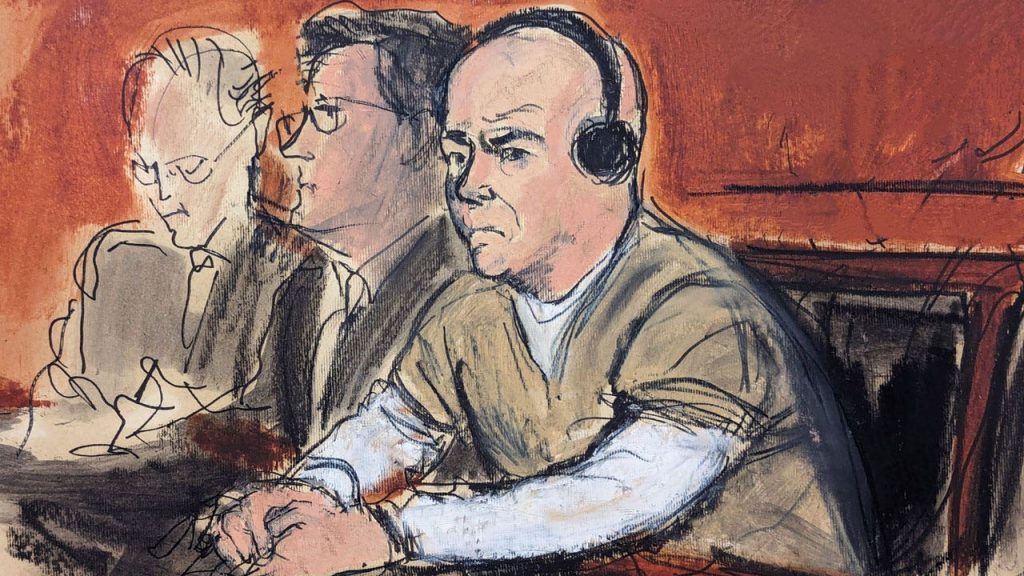Retired Venezuelan army general Cliver Alcalá was sentenced to over 21 years in prison by a U.S. District Judge in Manhattan for providing weapons to the Revolutionary Armed Forces of Colombia (FARC). Alcalá admitted to the charges after pleading guilty last year. The U.S. considers FARC to be a foreign terrorist organization, and prosecutors alleged that Alcalá had accepted millions of dollars in cocaine-fueled bribes. Despite his lawyers requesting a six-year sentence, Alcalá was ordered to serve 21 years and eight months in prison. U.S. Attorney Damian Williams stated that Alcalá had corrupted institutions in Venezuela by assisting the FARC in trafficking cocaine to the United States, but he will now face a lengthy prison term.
Alcalá, who had twice attempted to mount coups against Venezuelan President Nicolas Maduro, was accused of using his position in the Venezuelan military to aid in the distribution of cocaine by the FARC. Prosecutors claimed that Alcalá began working with the FARC in 2006 and utilized his role in the military to support the group’s drug trafficking activities. Alcalá surrendered in Colombia in 2020 after facing an indictment in New York that implicated him, Maduro, and several other military and political leaders in a conspiracy to use Venezuela to ship cocaine to the United States. Despite living modestly in Colombia before his arrest, Alcalá was found guilty of aiding in the trafficking of tons of drugs destined for the U.S.
In court documents, Alcalá’s lawyers argued that their client had lived humbly in Colombia prior to his arrest, residing in a small apartment, driving an older model car, and having a minimal amount of money in his bank account. The defense sought a more lenient sentence based on Alcalá’s circumstances before his incarceration. Alcalá, who has been reflecting on his choices and regrets while behind bars, stated in a recent interview that he has read over 200 books and stays in shape by running five miles on a treadmill daily. Despite his past actions, Alcalá appears to be using his time in prison to reflect on his past decisions and educate himself.
The sentencing of Alcalá highlights the ongoing issues of drug trafficking and corruption in Venezuela, as well as the international efforts to combat these criminal activities. Alcalá’s involvement with the FARC and his role in assisting with the trafficking of drugs to the United States underscore the challenges faced by law enforcement agencies in addressing transnational organized crime. The judgment against Alcalá sends a strong message that individuals involved in drug trafficking and terrorism will face severe consequences for their actions. Alcalá’s case serves as a warning to others who may be considering engaging in similar criminal behavior, emphasizing that there are significant penalties for those who participate in such illegal activities.
Alcalá’s prosecution and sentencing also shed light on the connections between the Venezuelan military and criminal organizations, illustrating the dangers of allowing corruption within security forces. The case underscores the importance of international cooperation in combating drug trafficking and terrorism, as well as the need for transparency and accountability in military institutions. Alcalá’s actions have had far-reaching consequences, and his imprisonment serves as a reminder of the repercussions of engaging in criminal behavior. The outcome of the case against Alcalá represents a victory in the fight against drug-related crimes and terrorism, demonstrating the commitment of law enforcement agencies to hold individuals accountable for their actions and disrupt illegal activities.


